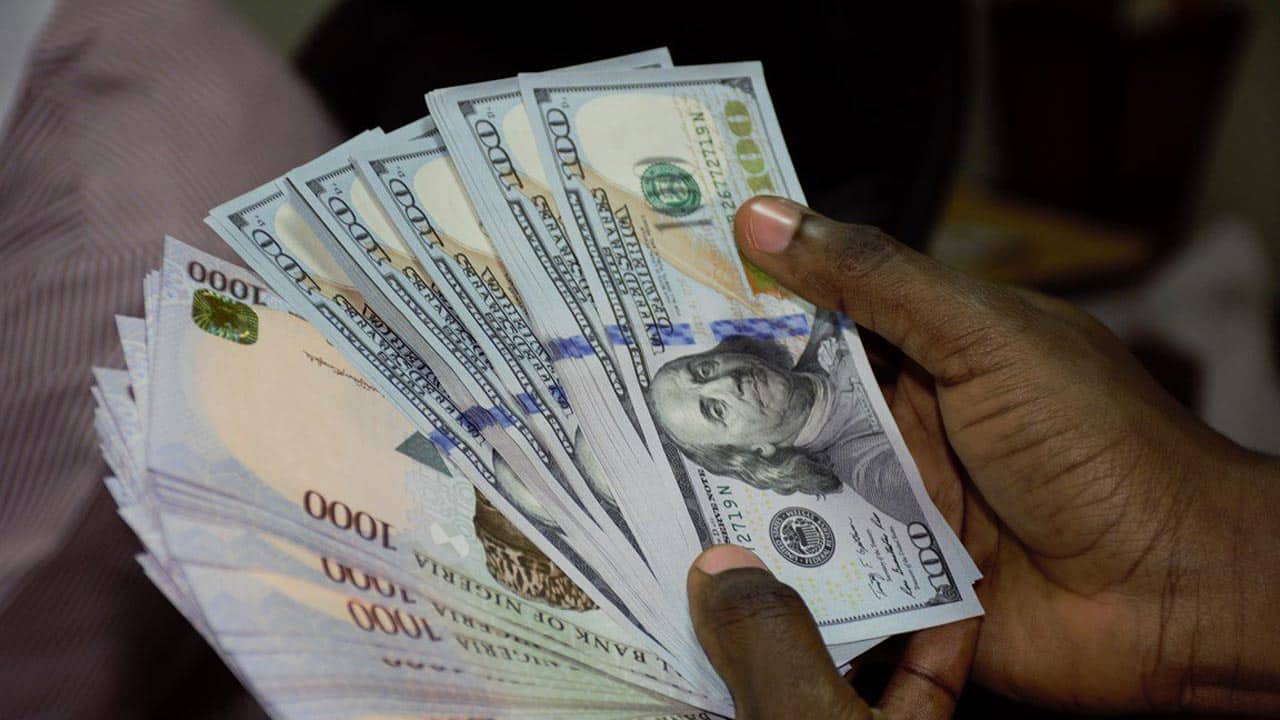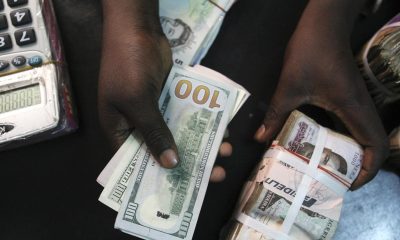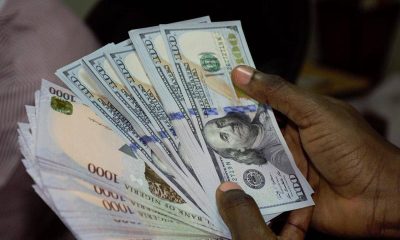Business
Naira Exchanges For ₦1,280/$ At Parallel Market

The Nigerian currency experienced mixed outcomes in different foreign exchange markets on Monday, with the Naira trading at ₦1,280 against the US dollar in the physical black market, a slight depreciation from ₦1,260 last week.
In contrast, the Nigerian Autonomous Foreign Exchange Market (NAFEM) saw the Naira gain strength, closing at N838.95 to the dollar, an improvement from the previous Friday’s rate of N890.54/US$1.
Throughout the past week, the Naira’s value fluctuated significantly, hitting a weekly low of N1089.51/US$1 on Tuesday and a high of N856.57/US$1 on Monday.
This volatility reflects the ongoing challenges in stabilizing the Naira’s value in the face of economic pressures.
In the Peer-to-Peer (P2P) market, often utilized by crypto traders, retail investors, and speculators, the Naira was valued at approximately N1272/$ in the early hours of Monday, dropping from the weekend’s rate of N1255/$.
This market, though unofficial, is a significant indicator of the Naira’s performance among a section of the foreign exchange traders.
Compounding the currency’s challenges, the Central Bank of Nigeria (CBN) released data indicating a decline in Nigeria’s gross official reserves. As of December 2023, the reserves decreased by US$91.6 million, settling at USD32.9 billion.
This decline marked a substantial drop of about US$4.2 billion over the course of 2023, averaging a monthly depletion rate of around USD348 million.
Analysts at FBNQuest have noted that the trend in gross official reserves has been generally downward since October 2021.
This ongoing decrease in reserves presents concerns for the country’s financial stability and has implications for the Naira’s value on both the official and parallel markets.
The mixed performance of the Naira across various markets and the decline in foreign reserves highlight the complex economic challenges facing Nigeria.
Policymakers and economic experts are closely monitoring these trends to gauge the health of the nation’s economy and currency stability.
The analysts stated in an advisory note to client, “This is mainly due to the strong demand for foreign exchange by end-users, weak accretion to the reserves from export proceeds (primarily crude oil), and the declining trend in foreign portfolio inflows.”
The firm noted that total reserves as at end December 2023 covered 7.7 months of merchandise imports per the balance of payments for the 12 months to June 2023 and 5.7 months “when we add imported services.”
However, for a more accurate picture, FBNQuest stated that there should be adjustment in the gross reserve figure for the pipeline of delayed external payments and the encumbered portion of the reserves.
The reserve cover of 7.7 months (5.7 months including services) appears to have improved compared to the 7.1 months of merchandise import cover (5.3 months including services) as of Jun ‘23.
“However, this apparent enhancement is primarily attributed to import constraints resulting from limited access to foreign exchange for importers.
“A significant factor worth highlighting is the -14percent year on year (y/y) decline in total merchandise imports to US$51.6billion for the 12 months ending June 2023 compared with the US$60.0billion for the year earlier period ending June 2022.
“Late last year, the CBN began a gradual reduction of the backlog of foreign exchange (fx) forwards.
“Roughly USD2billion has been successfully cleared from an estimated outstanding amount of US$7billion.
“We anticipate limited accretion to the external reserves this year due to challenges in raising Nigeria’s crude oil output from about 1.3 million barrels per day (mb/d) toward the 1.78 mbd envisaged in the 2024 budget.
“Regarding pricing, expected OPEC production cuts may be offset by higher non-OPEC oil output, notably the anticipated rise in US production. This is likely to keep oil prices in equilibrium.
“We forecast the gross official reserves at about US$34.0billion by the end of 2024, slightly higher than the US$32.9billion it closed in 2023,” FBNQuest analysts noted.






